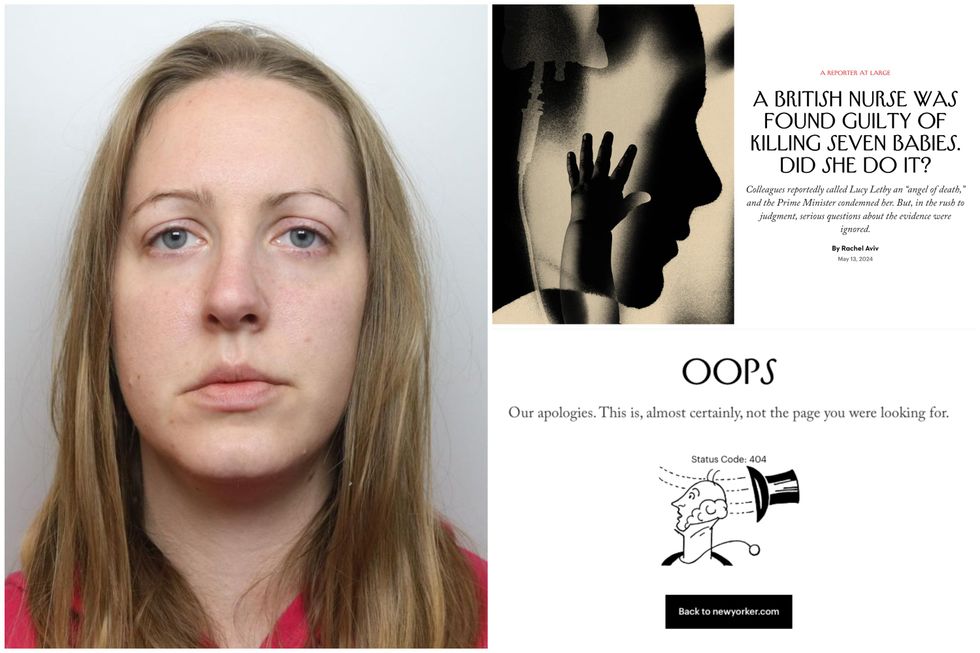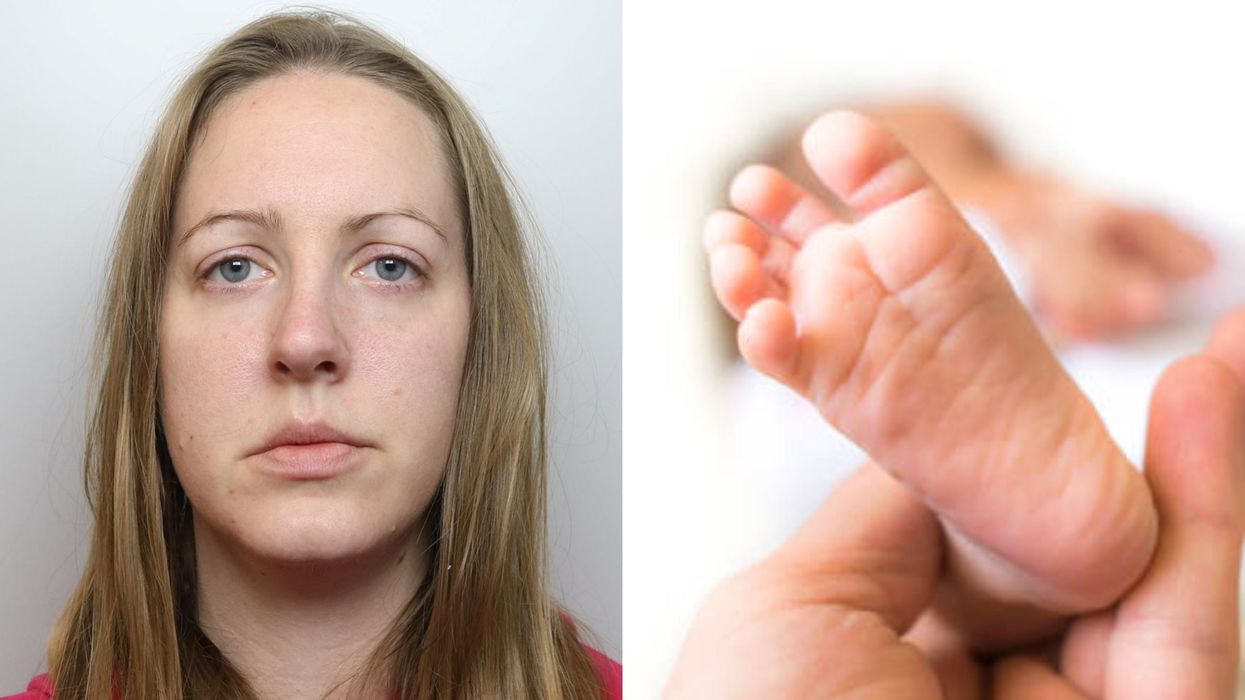Harriet Brewis
May 15, 2024
Nurse Lucy Letby Who Murdered 7 Babies Sentenced To Life In Prison
unbranded - Newsworthy / VideoElephant
A 13,000-word article published by the New Yorker is one of the most hotly debated pieces of journalism right now and yet, people can’t even read it.
The long read by Rachel Aviv examines “serious questions about the evidence” in the trial of Lucy Letby who, last August, was named as Britain’s most prolific child serial killer.
Letby, 34, a former neonatal nurse is serving 14 whole-life sentences for the murder of seven babies and the attempted murder of six others.
For her investigation, titled ‘A British Nurse Was Found Guilty of Killing Seven Babies. Did She Do It?,’ Aviv said she drew from “more than seven thousand pages of court transcripts, which included police interviews and text messages, and from internal hospital records that were leaked to me.”
However, despite the huge interest surrounding the reporter’s findings, we are not able to read her New Yorker story. This is because of a court order which blocks access to the article in the UK.
The court order bans the reporting of new material relating to the case and was implemented to prevent the publication of anything that may prejudice a jury.
This is because Letby is due to face a retrial for one count of murder next month.

Broadcast journalist Sophia Stanford explained the reasoning in a video posted to X/Twitter.
In the clip, she pointed out that, in the UK, we have laws which protect the reporting of certain cases, to avoid what is known as contempt of court.
“There are lots of details that you can't share through the media, but sometimes judges can add even more court orders that restrict reporting of certain details and sometimes the reporting of the case entirely,” she said.
“This is done so that everyone is entitled to a free and fair trial and a jury won't be swayed by what the media say.”
Stanford also noted that, because Letby is facing a retrial in June over the alleged attempted murder of a baby girl, her case is still active.
This means that any new information published could risk prejudicing the jury.
“Imagine if you had read this article or knew someone who had,” she said of the New Yorker piece. “You’d probably already have a pretty strong idea about whether you think Lucy Letby did or didn't kill these babies.
“That would get in the way of finding the truth, which is the job of the court.
Still, if you’re confused as to why it was allowed to be published in the first place, it's because the US has its own media laws, it doesn’t adhere to ours.
Nevertheless, plenty of Brits argue that these laws should be changed and that they stand “in defiance of open justice.”
The latter assessment was made by former Tory minister Sir David Davis in the Commons on Tuesday (14 May), who called on the government to review the court order blocking UK access to Aviv’s investigation.
The Haltemprice and Howden MP told the Commons: “Yesterday the New Yorker magazine published a 13,000-word inquiry into the Lucy Letby trial.
“That article was blocked from publication on the UK internet, I understand because of a court order. Now, I’m sure that court order was well intended but it seems to me in defiance of open justice.
“Will the Lord Chancellor look into this matter and report back to the House?”

Justice Secretary Alex Chalk replied: “Court orders must be obeyed and court orders can be displaced by someone applying to court for them to be removed. So that will need to take place in the normal course of events.
“I will just simply make a point on the Lucy Letby case – that jury’s verdict must be respected. If there are grounds for an appeal, that should take place in the normal way.”
In August last year, Letby was convicted of the murders which took place at the Countess of Chester Hospital’s neonatal unit, where she worked as a nurse, between June 2015 and June 2016.
The 34-year-old has submitted a bid to challenge her convictions at the Court of Appeal.
If judges decline to give the go-ahead for the challenge, it will mark the end of the appeal process for Letby.
The jury in Letby’s trial at Manchester Crown Court was unable to reach verdicts on six counts of attempted murder in relation to five children.
She will face a retrial at the same court in June on a single count that she attempted to murder a baby girl, known as Child K, in February 2016.
A court order also prohibits reporting of the identities of the surviving and dead children who were the subject of the allegations.
Sign up for our free Indy100 weekly newsletter
Have your say in our news democracy. Click the upvote icon at the top of the page to help raise this article through the indy100 rankings
Top 100
The Conversation (0)













